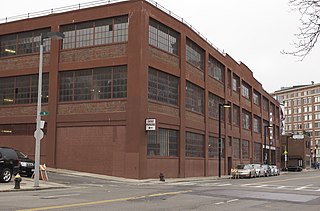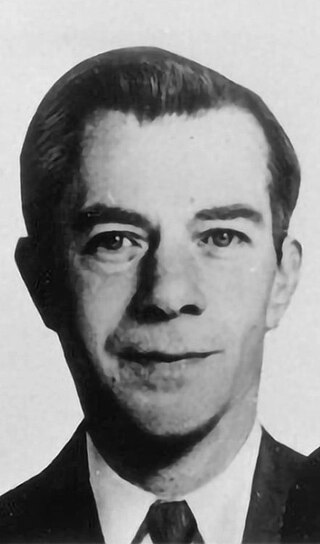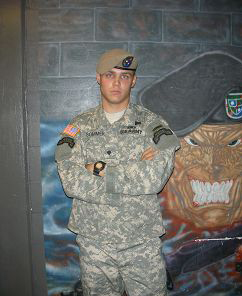This article has multiple issues. Please help improve it or discuss these issues on the talk page . (Learn how and when to remove these messages)
|
Robert Vernon Toye, (b 1948?) nicknamed "Blind Bob" is a US bank robber who is legally blind.
This article has multiple issues. Please help improve it or discuss these issues on the talk page . (Learn how and when to remove these messages)
|
Robert Vernon Toye, (b 1948?) nicknamed "Blind Bob" is a US bank robber who is legally blind.
Toye was born in San Pedro, California and developed retinitis pigmentosa in the early age.
In 1968 he begin a mail scam where people would send him $5 application fee to receive work stuffing envelopes. 1973 he was sentenced for mail fraud and jailed in Springfield, Missouri.
In prison he heard that bank tellers in federally insured banks were instructed to hand out the money to robbers without incident. So, when Toye was released 1974, he proceeded to make his first bank robbery shortly after he had left the prison. He was armed only with his white cane and a note that claimed he had a gun.
Toye concentrated on using his right eye to see shadowy impressions of other people's feet and followed them to the bank teller's window. There he would flash a one-eyed jack with a text "Be quick, be quiet, or you're dead. Put all the cash in the bag. I have a gun". When he had received the money, he retreated back to the door. He used the same technique many times.
Toye was captured 1977 in New York City when he collided with armed guards that were delivering money to the bank. Next six years he spent in the Metropolitan Correctional Center in New York. When he got out in February 1983, he went to a Citibank and stole $18,000.
Toye moved to Las Vegas but made a list of all the Citibank branches in New York. Nine times he flew to New York to rob a bank and immediately returned to Las Vegas after the robbery. He put the money in a Vegas bank account under a false name. He was arrested May 24, 1983 when he took a detour to a discount store. Toye was sentenced to 17 years and tried to escape 11 times.
In an interview for the People magazine in 1990, Toye claimed that he had given part of his loot to charity, including to retinitis pigmentosa research. At the time he had robbed 17 banks and was serving time in Lompoc Federal Penitentiary, near Santa Barbara, California, due to be released 1993.

Bank robbery is the criminal act of stealing from a bank, specifically while bank employees and customers are subjected to force, violence, or a threat of violence. This refers to robbery of a bank branch or teller, as opposed to other bank-owned property, such as a train, armored car, or (historically) stagecoach. It is a federal crime in the United States.

Take the Money and Run is a 1969 American mockumentary crime comedy film directed by Woody Allen. Allen co-wrote the screenplay with Mickey Rose and stars alongside Janet Margolin. The film chronicles the life of Virgil Starkwell, an inept bank robber.

The Great Brink's Robbery was an armed robbery of the Brink's building in the North End of Boston, Massachusetts, on January 17, 1950. The $2.775 million theft consisted of $1,218,211.29 in cash and $1,557,183.83 in checks, money orders, and other securities. It was at the time the largest robbery in the history of the United States and has been called "the crime of the century". The robbery remained unsolved for nearly six years, until estranged group member Joseph O'Keefe testified only days before the statute of limitations would have expired.

William Francis Sutton Jr. was an American bank robber. During his forty-year robbery career he stole an estimated $2 million, and he eventually spent more than half of his adult life in prison and escaped three times. For his talent at executing robberies in disguises, he gained two nicknames, "Willie the Actor" and "Slick Willie". Sutton is also known as the namesake of the so-called Sutton's law, although he denied originating it.

Harry "Pete" Pierpont was a Prohibition era gangster, convicted murderer and bank robber. He was a friend and mentor to John Dillinger.
On September 12, 1997, six men robbed the Dunbar Armored facility on Mateo St. in Downtown Los Angeles, California of US$18.9 million. The robbery was orchestrated by Allen Pace III, of Compton, with childhood friends Erik Damon Boyd, of Buena Park; Eugene Lamar Hill Jr., of Bellflower; Freddie Lynn McCrary Jr., of Arleta; Terry Wayne Brown Sr., of Los Angeles; and Thomas Lee Johnson, of Las Vegas, Nevada. It was the largest cash robbery to have occurred in the United States until the Easter Sunday heist on March 31, 2024 which was estimated at over $30 million.

On August 28, 2003, pizza delivery man Brian Douglas Wells robbed a PNC Bank near his hometown of Erie, Pennsylvania, United States. Upon being apprehended by police, Wells died when an explosive collar locked to his neck detonated. The FBI investigation into his death uncovered a complex plot described as "one of the most complicated and bizarre crimes in the annals of the FBI".
J. L. Hunter "Red" Rountree was an American folk hero who was believed to have been the world's oldest active bank robber. On August 12, 2003, Rountree walked into the First American Bank in Abilene, Texas, to hand a large envelope to the teller marked "robbery." Moments later, Rountree sped off in a 1996 Buick Regal with $2,000.00 in small bills. He was arrested shortly thereafter when a witness wrote down his car license plate number.
The 1981 Brink's robbery was an armed robbery and three related murders committed on October 20, 1981, by several Black Liberation Army members and four former members of the Weather Underground, who were at the time associated with the May 19th Communist Organization. The plan called for the BLA members – including Kuwasi Balagoon, Sekou Odinga, Mtayari Sundiata, Samuel Brown and Mutulu Shakur – to carry out the robbery, with the M19CO members – David Gilbert, Judith Alice Clark, Kathy Boudin, and Marilyn Buck – to serve as getaway drivers in switchcars.

Luke Elliott Sommer is a former US Army Ranger and bank robber. After almost two years under house arrest in Canada, he pleaded guilty on May 27, 2008 to the August 7, 2006 robbery of a branch of the Bank of America in Tacoma, Washington. Sommer is currently serving his sentence at Coleman II United States Penitentiary.
James Page is a former professional boxer in the welterweight (147lb) division.
Johnny Madison "The Shootist" Williams Jr. is one of the most successful bank robbers in American history. After his arrest on July 9, 1994, Williams confessed to 56 bank robberies across the states of California, Texas, and Washington state over an eight-year period, beginning in 1986, usually with the help of his wife, Carolyn, usually known as Carol. He kept a meticulous record of his heists, reporting his career total as $879,357.
Dean v. United States, 556 U.S. 568 (2009), was a decision by the United States Supreme Court upholding a 10-year penalty for the discharge of a firearm during the commission of any violent or drug trafficking crime, against a bank robber whose gun went off accidentally.

The 1907 Tiflis bank robbery, also known as the Erivansky Square expropriation, was an armed robbery on 26 June 1907[a] in the city of Tiflis in the Tiflis Governorate in the Caucasus Viceroyalty of the Russian Empire. A Bolshevik group "expropriated" a bank cash shipment to fund their revolutionary activities. The robbers attacked a bank stagecoach, and the surrounding police and soldiers, using bombs and guns while the stagecoach was transporting money through Erivansky Square between the post office and the Tiflis branch of the State Bank of the Russian Empire. The attack killed forty people and injured fifty others, according to official archive documents. The robbers escaped with 241,000 rubles.
Joe Loya Jr. is an American writer and former convicted bank robber. He grew up in Los Angeles, and from 1985 was robbing banks in Southern California until he began a seven-year prison sentence in Lompoc Federal Penitentiary. While in prison he was placed in solitary confinement for violent behavior. During this time he developed a friendship with the author Richard Rodriguez. After his release in 1996 he wrote about prison life for the Pacific News Service. He published his biography, The Man Who Outgrew His Prison Cell, in 2005.
Jeffrey Shuman is an American-French bank robber, dubbed "The Vaulter", considered to be one of Canada's most prolific bank robbers. In 1994, he pleaded guilty to robbing 14 banks in the United States, receiving a 12-year sentence, but was released in 2004, and fled the country while on parole. He then robbed 21 banks in Canada, before fleeing to France on his French passport. In 2016, he was extradited to Canada, and in 2017, was sentenced to 15 years in prison and ordered to pay back nearly $450,000 in restitution after pleading guilty to seven counts of robbery using a firearm.

The Bonded Vault heist was the August 1975 robbery of the Bonded Vault Company, a commercial safe-deposit business occupying a vault inside Hudson Fur Storage in Providence, Rhode Island. It served as the unofficial "bank" used by the Patriarca crime family and associates. The stolen valuables were worth about $30 million. According to The Providence Journal, it was among the biggest heists in US history and resulted in the longest and costliest criminal trial in Rhode Island history.
The Lincoln National Bank robbery took place on September 17, 1930 when a group of armed men entered a bank in Lincoln, Nebraska, stole approximately $2.7 million in cash and securities, and then fled with help of a getaway driver. No one was seriously injured during the robbery. The majority of the money was never recovered.
Gilbert William Galvan Jr. is an American bank robber. Having spent many of his adult years in prison, Galvan fled to Canada where he assumed the name Robert Lee Whiteman and began a three-year spree robbing banks and jewelry stores in the 1980s. The media dubbed him the Flying Bandit and the Phantom Bandit. Galvan's exploits were the subject of a 1996 true crime book, The Flying Bandit, written by Robert Knuckle and Ed Arnold, which was adapted into the 2022 film Bandit.
On February 10, 1997, the Seafirst Bank branch of Lakewood, Washington, was robbed of $4,461,681 in cash by Billy Kirkpatrick and Ray Bowman, also known as the Trenchcoat Robbers. An investigation by the Federal Bureau of Investigation and the Internal Revenue Service caught the two, and they were both sent to 15 years in prison in 1999. It is one of the largest robberies in U.S. history.